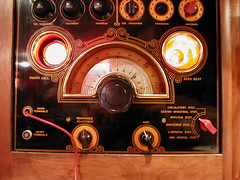Defamation, SLAPP, and medicine: Doctor’s Data, Inc. v. Barrett et al
By Kristopher A. Nelson
in
January 2011
600 words / 3 min.
Tweet
Share
Doctor’s Data filed a defamation lawsuit against Quackwatch and Dr. Stephen Barrett. Should this be considered a SLAPP lawsuit intended only to silence their critics?
Please note that this post is from 2011. Evaluate with care and in light of later events.
 Quackwatch tries to highlight medical practices that lack a basis in scientific or evidence-based medicine. Techdirt gives one example of Dr. Stephen Barrett‘s approach:
Quackwatch tries to highlight medical practices that lack a basis in scientific or evidence-based medicine. Techdirt gives one example of Dr. Stephen Barrett‘s approach:
Barrett has written a few times about a medical lab named Doctor’s Data, that he feels is helping certain medical practitioners defraud patients through misleading results. Here’s one example of such a report. You’ll notice that it’s pretty detailed in explaining why Barrett has problems with the use of these reports.
– Quackwatch Sued For Suggesting Medical Lab Quackery
This goal, as you might expect, sometimes gets Quackwatch in trouble. Last summer, Doctor’s Data filed a lawsuit against Quackwatch for “restraint of trade; trademark dilution; business libel; tortious interference with existing and potential business relationships; fraud or intentional misrepresentation; and violating federal and state laws against deceptive trade practices.” (Doctor’s Data, Inc. v. Barrett et al.)
From my reading, the main complaint seems to be that Barrett has gone through the test report produced by Doctor’s Data, along with the context in which medical practitioner’s request testing, and found it wanting in medical utility. Even more defaming, according to the suit, is that he wrote that primarily “nonstandard practitioners” make use of Doctor’s Data.
His description of the testing process suggests that practitioners first give patients heavy metals (“provocation”), then order a test for heavy metals, then tell them they need chelation therapy when the test results come back saying patients have elevated levels of heavy metals in their systems. His conclusion? “Provoked testing is a scam.” He goes on to review the advice endorsed by Doctor’s Data’s vice president–recommending chelation therapy–as “very, very, very, very wrong.”
Doctor’s Data took umbrage with Dr. Barrett’s criticisms, and sued. First, though, they sent a cease and desist letter, demanding a retraction, but failing to identify the specific statements at issue. After a further letter that also neglected to name specifics, Doctor’s Data filed suit in federal court in Illinois.
Without paying PACER to access the various filings, I can’t glean much more about the details and progress of the case. At first glance, it seems like a classic example of a potential SLAPP lawsuit–that is, a suit designed specifically to silence critics, whatever the merits of the criticism. Illinois does have anti-SLAPP legislation, known as the Citizen Participation Act (CPA) and, apparently, Barrett’s attorneys have indeed filed an anti-SLAPP motion.
It’s unclear to me whether such an action will be successful under the Illinois statute, since the CPA is focused primarily on protecting speech concerning government or public concern. That said, it seems to me, calling out possibly fraudulent medical activity falls on the side of discussing an issue of public concern.
Of course, defamation is an actionable offense, provided the defamatory statements are not true (truth is an absolute defense) nor mere opinion. First Amendment protections, of course, are considerations, which is likely why Doctor’s Data focused on the business aspects of the case (benefits to Quackwatch as a business–although it appears to be a nonprofit–and harm to Doctor’s Data’s business). Barrett, then, would likely emphasize that he is acting in the public interest, as journalists do, and is not, for example, trying merely to damage Doctor’s Data’s business or to act as a competitor.
I’ll be curious to see where this goes next. My prediction on the outcome? Likely favorable to the defendant–but that’s just my opinion.
Related articles
- The Quackwatch Lawsuit Attacks Free Speech And Science (blogs.forbes.com)
- Doctor’s Data Sues Quackwatch (sciencebasedmedicine.org)
